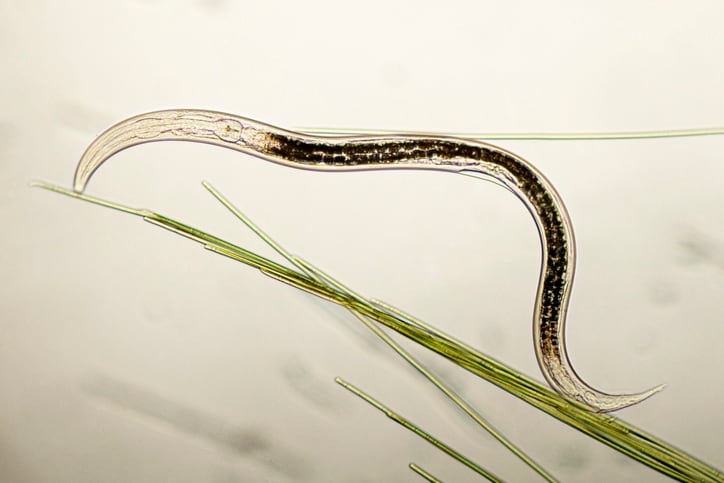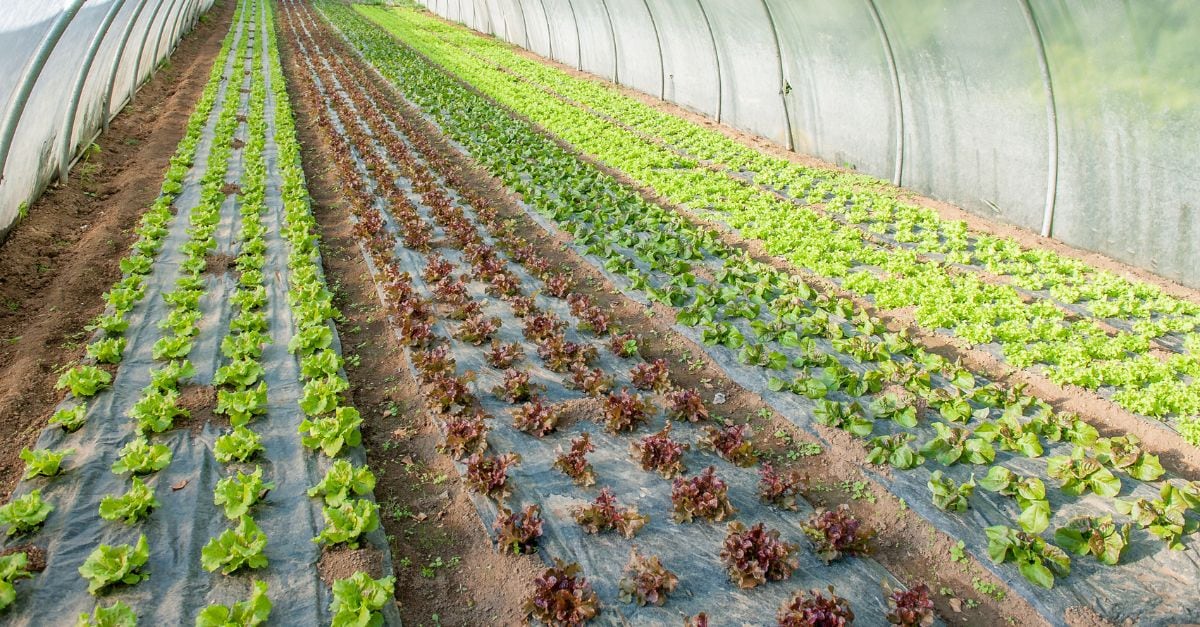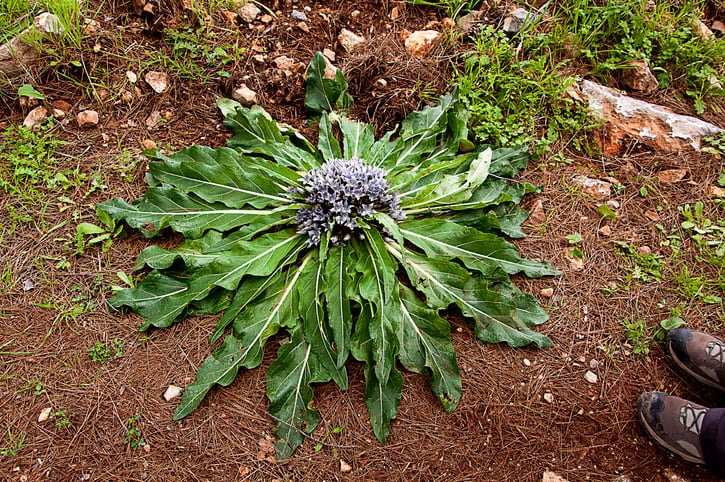Climate change and genetic selection have brought root-knot nematodes further north in Europe and made cyst nematodes more difficult to control, the university said.
These emerging parasites threaten major crops such as tomato and potato. To get a clear picture of the proliferation of these novel nematode species and populations and to find appropriate and sustainable solutions to these problems, WUR is launching a major research and innovation project with 18 European partners called NEM-EMERGE. The project has been accepted as a Horizon Europe Project, resulting in €7 million euros in funding.
Root-knot and cyst nematodes rank one and two of the most impactful plant-parasitic nematodes and pose a “grievous threat” to tomatoes and potatoes, WUR revealed.
“They drain energy from the plant, causing a plant condition referred to as fatigue,” explained Researcher Hans Helder.
As a result, the crop barely grows and is severely weakened leading to crop loss and hence economic damage.
Annually, root-knot nematodes alone cause yield losses of several billion euros. Next to crop rotation and resistant varieties, growers currently use broad-spectrum chemicals to control these nematodes which have unwanted negative side-effects on nature and the environment.
Climate change and genetic selection
Both root-knot nematodes and cyst nematodes are on the rise, owing to climate change. Winters are becoming milder. As a result, ‘tropical’ root-knot nematodes are moving further north. Whereas they used to be found only in North Africa and southern Europe, in recent years they have also been observed in central France and halfway across the Balkans.
Climate change is affecting soil temperatures. “At temperatures of 28 degrees or higher, some important resistance genes of crops no longer work,” the researcher warned. This line of defence that protects plants against parasites is thereby lost.
Genetic selection is another driver that plays a role in the emergence of nematodes. Frequent use of a limited number of resistant crop varieties has resulted in the rise of nematodes that are less sensitive to these resistance genes.
Mapping the scope of the problem
The project will now investigate the current distribution of root-knot nematodes and where exactly are they currently occurring.
“From southern Turkey and Spain to northern Germany, we are going to take soil samples about every two to three hundred kilometres to investigate the presence of plant-parasitic nematodes,” revealed Helder. “Based on the resulting picture, modellers can predict where we can expect them in five or 15 years.”
Misfunctioning of resistance genes
WUR associate professor, Aska Goverse, aims to tackle the instability of resistance genes in plants under higher temperatures in one of the other work packages. “We have been working on the molecular mechanisms that underly the misfunctioning of resistance genes for several years,” she explained.
“We have a pretty good view of the factors determining their function for some diseases, but not yet for these plant-parasitic nematodes. In the case of tomatoes, we often don’t know whether the loss of resistance is caused by temperature increase or genetic selection. That makes predicting further developments challenging.”
Another challenge lies, she added, in distinguishing between different populations of parasitic nematodes and determining which ones can still be controlled and which can’t.
Translating into practical solutions
The researchers will work on solutions in close cooperation with end-users. As the use of pesticides is increasingly restricted within the EU, farmers seek alternative methods. “Growers require knowledge and practical tools to make a transition towards sustainable agriculture,” said Goverse.
With the EU steering users towards integrated crop management, the project will look at what tools are needed to reach that goal.
The researchers will, for instance, study how they can boost the soil’s disease-suppressive potential. “At the same time, researchers want to know the demands and the conditions for innovation from an end-user’s perspective,” Goverse explained. “The ultimate goal is to develop solutions that can be put into practice."
Collaboration is equally important
While there is no single silver bullet solution for the afore-mentioned nematode problems, Helder warned, “We cannot afford to focus exclusively on, for example, new resistant varieties because it is only a matter of time before a new population of nematodes emerges that can break this resistance. We must really focus on a wide range of measures, from plant resistances to more hygienic working practices to the stimulation of natural enemies.”
The project is a collaboration between 18 European institutions from Spain, France, Scotland, Turkey and Slovenia, as well as experts specialising in biological control, plant health and breeding. Besides the official project partners, NEM-EMERGE will also involve local groups.
Helder therefore stressed that the project involves ‘more than just a large subsidy from Brussels’. “The collaboration between research groups is at least as valuable. It is already there, but only sparingly. The breadth of the consortium, from growers to universities, gives this project an extra dimension. We hope that this project can be the oil that will greatly boost cooperation between European research centres.”





